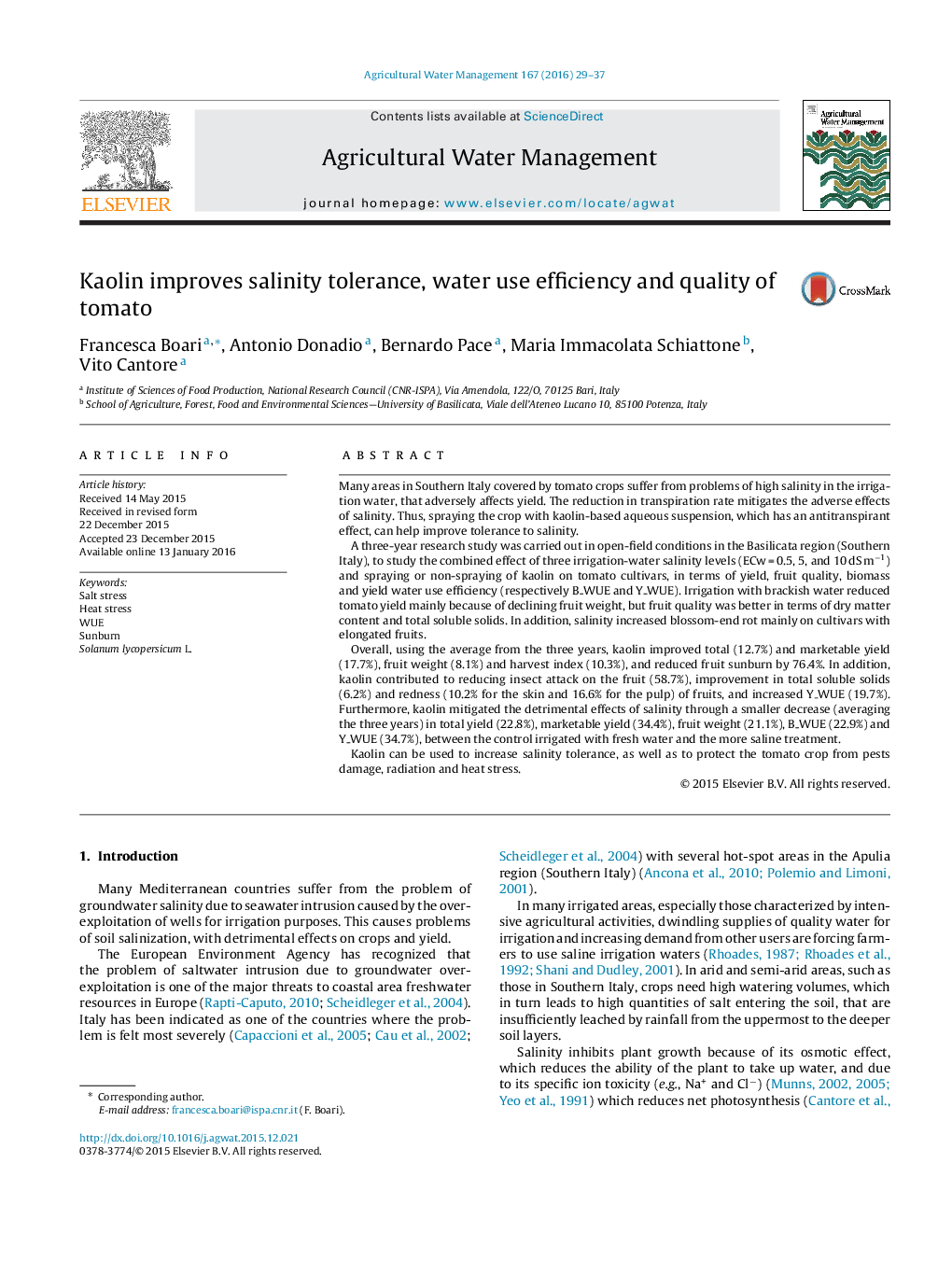| کد مقاله | کد نشریه | سال انتشار | مقاله انگلیسی | نسخه تمام متن |
|---|---|---|---|---|
| 4478322 | 1622913 | 2016 | 9 صفحه PDF | دانلود رایگان |
• Kaolin mitigates detrimental effects of salinity on tomato crop.
• Kaolin improves yield and biomass water use efficiency (Y_WUE and B_WUE) of tomato.
• Kaolin reduces fruit sunburn and insect attack on the fruits.
• Kaolin enhances the total soluble solids and redness of fruits.
Many areas in Southern Italy covered by tomato crops suffer from problems of high salinity in the irrigation water, that adversely affects yield. The reduction in transpiration rate mitigates the adverse effects of salinity. Thus, spraying the crop with kaolin-based aqueous suspension, which has an antitranspirant effect, can help improve tolerance to salinity.A three-year research study was carried out in open-field conditions in the Basilicata region (Southern Italy), to study the combined effect of three irrigation-water salinity levels (ECw = 0.5, 5, and 10 dS m−1) and spraying or non-spraying of kaolin on tomato cultivars, in terms of yield, fruit quality, biomass and yield water use efficiency (respectively B_WUE and Y_WUE). Irrigation with brackish water reduced tomato yield mainly because of declining fruit weight, but fruit quality was better in terms of dry matter content and total soluble solids. In addition, salinity increased blossom-end rot mainly on cultivars with elongated fruits.Overall, using the average from the three years, kaolin improved total (12.7%) and marketable yield (17.7%), fruit weight (8.1%) and harvest index (10.3%), and reduced fruit sunburn by 76.4%. In addition, kaolin contributed to reducing insect attack on the fruit (58.7%), improvement in total soluble solids (6.2%) and redness (10.2% for the skin and 16.6% for the pulp) of fruits, and increased Y_WUE (19.7%). Furthermore, kaolin mitigated the detrimental effects of salinity through a smaller decrease (averaging the three years) in total yield (22.8%), marketable yield (34.4%), fruit weight (21.1%), B_WUE (22.9%) and Y_WUE (34.7%), between the control irrigated with fresh water and the more saline treatment.Kaolin can be used to increase salinity tolerance, as well as to protect the tomato crop from pests damage, radiation and heat stress.
Journal: Agricultural Water Management - Volume 167, 31 March 2016, Pages 29–37
